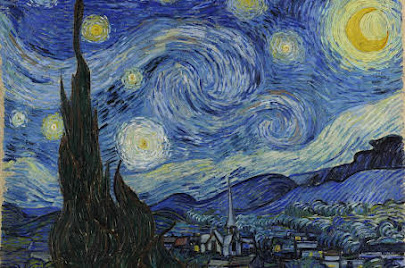Learning Theories
Part I
WARM UP
Activity
Class begins with music and warm up. Students are invited to get on their feet, get away from their desks and follow the professor's muscle groups - isolation warm up.
In previous classes, we added conscious breathing at the end of the warm up, self-affirmations and meditation.
Today, we are adding mindfulness, a
a mental state achieved by focusing one's awareness on the present moment, while calmly acknowledging and accepting one's feelings, thoughts, and bodily sensations.
Question 1
How did you feel after the warm up today? Post your answer on Discussion Board.
----------------------
Part II
INTRO TO LEARNING THEORIES
Today we will introduce the different learning theories used in most educational systems around the world. Please, watch the video below and move the discussion forward by answering to the following questions:
A brief introduction to Learning Theories
Question 2
What are learning theories?
---------------------------
Part III
The 5 Educational Learning Theories
2. Cognitivism: Cognitivism focuses more on the mind and the thinking process through reading texts and lecture instructions. People who learn this way are often thought as information processors. People are rational human beings whose actions are consequences of thinking. It focuses on the processes of mental activities like thinking, memory, knowing, and problem solving. Schema theory is using your own knowladge to further your learning, sort of like a Black Box on an airplane.
3. Constructivism: Constructivism is a theory in education that recognizes the learners' understanding and knowledge based on their own experiences prior to entering school. It is associated with various philosophical positions, particularly in epistemology as well as ontology, politics, and ethics. It is based on the idea that people are responsible in creating their own understanding of the world by using what they know based on previous experiences in the process of linking new information to these experiences. People use these experiences and new information to construct their own meaning.
4. Humanism:Humanism is when someone is trying to be a complete person. To do that, one must achieve the tiers of Maslow’s hierarchy of needs which is separated into three categories: basic needs, psychological needs, and self-fulfillment. The goal is to cultivate a person as a whole and create the most optimal self. A person must gradually ascend the humanistic needs based on a hierarchy to reach their peek potential. Humanism emphasizes the individual’s values, motivations, and goals. Humanistic theory has the basic assumption that people exist with free will and the ability to influence their lives through acts of intentionality.
5. Connectivism: Connectivism is a theoretical framework for understanding learning in a digital age. It emphasizes how internet technologies such as web browsers, search engines, wikis, online discussion forums, and social networks contributed to new avenues of learning. Today we live in the social media world with a lot of technology at our disposal. It is very easy to connect all around the world and find new resources and information about any subject. Everyone of all ages can easily connect with the technology at our hands.
VIDEOS
CONSTRUCTIVISM
Jim Applegate, Jesse Delia, Brant Burleson
-------------------------
-------------
Other theories:

Comments
Post a Comment